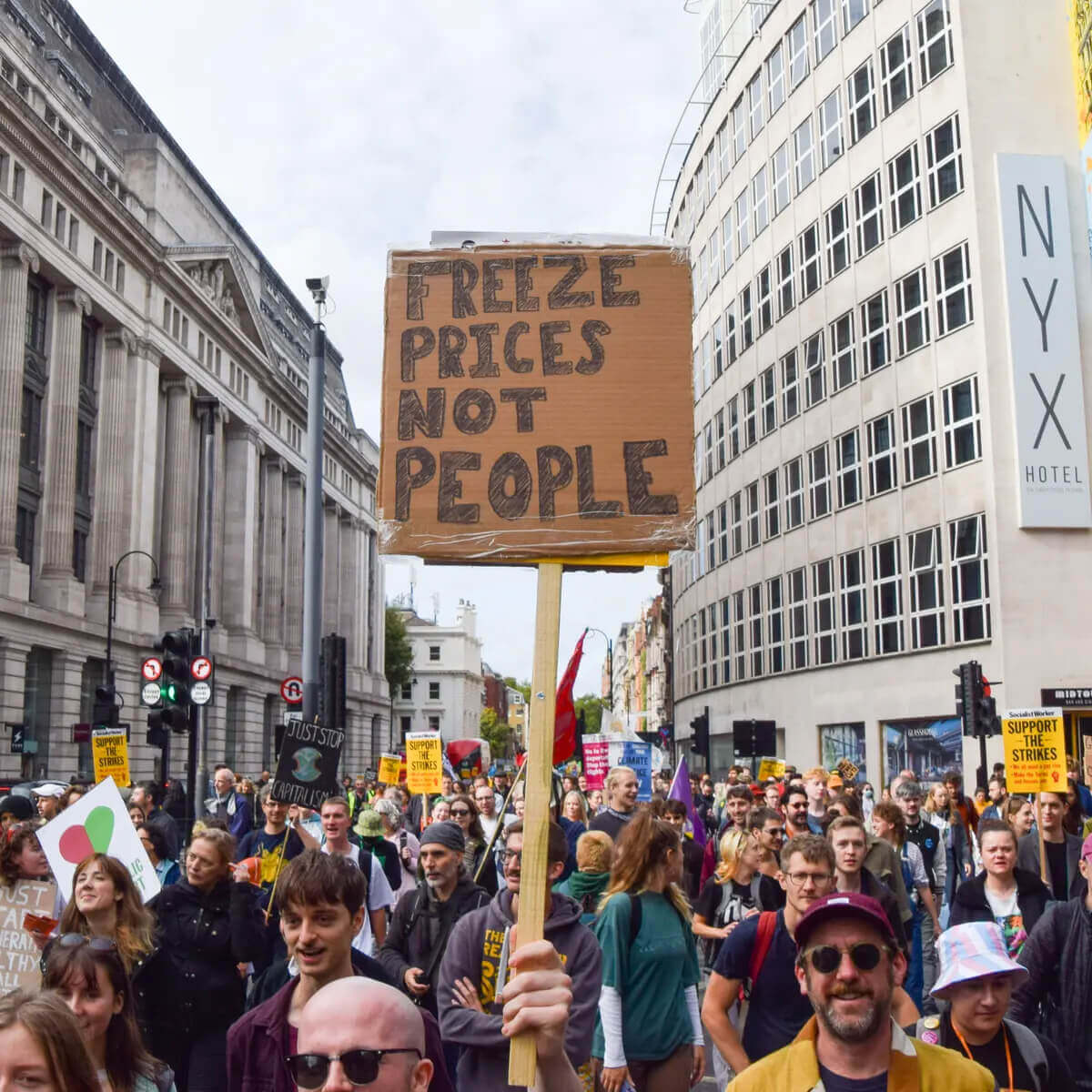British PM Rishi Sunak is seeking to enhance police powers in England and Wales through the Public Order Bill by delineating new crimes related to disruption of public order, allowing “stop and search powers,” and clarifying provisions on personnel powers concerning public order.
AIM OF THE LAW
If passed, the law will widen the definition of “serious disruption” and give police personnel “greater flexibility and clarity” to prevent “disruptive minority” protesters from impacting public life.
According to a UK government release, police force heads have complained that while the government has awarded powers to prevent protestors from using guerrilla tactics, the relevant laws had not clarified the “threshold” of severe disruptions.
Campaigners outraged by plans to crack down on new tactics by groups like Just Stop Oil & Extinction Rebellion- allowing the police to shut down “highly disruptive protests” before they even begin. Govt says it’s a response to police request for legal clarity @KamaliMelbourne pic.twitter.com/2YX10On8IE
— Amanda Akass (@amandaakass) January 16, 2023
Consequently, the changes sought will allow the following:
- The police officers will be allowed to stop protests before any disruption and chaos.
- Officers can take decisions based on the “total impact” of the protests and not just act against “standalone incidents.”
- Officers can act on assessments of “long-running campaigns” that seek to disrupt public life over days or weeks.
SUPPORT FOR THE BILL
Sunak said that while he considers the “right to protest” as fundamental in the UK’s democratic society, the right is “not absolute.” He said it was “unacceptable” to allow protests by a “small minority” to impact ordinary people.
Accordingly, he said that the law aims to balance the rights of individuals to protest and the rights of the “hard-working majority” to conduct their “day-to-day business.”
Similarly, the Metropolitan Police’s Commissioner, Sir Mark Rowley, highlighted the department’s struggle with the “long history of policing protests” to prevent disruptions and crimes. Rowley stressed that the officials were now facing “complex legal arguments” about balancing the right to protest with the need to protect citizens’ ordinary lives.
📢The #PublicOrderBill is an attack on people's ability to stand up to power
— Liberty (@libertyhq) January 15, 2023
📢Protest isn't a gift from the State - it's OUR RIGHT pic.twitter.com/zuZ9m1qLrB
Previously, the police had struggled to decipher the law and its limitations and obligations and sought “legal clarity” on their power to curtail protests. Thus, he celebrated the government’s decision to introduce legal definitions of “serious disruption” and “reasonable excuse.”
Other police officials applauded the “constructive conversations” and reiterated that policing demonstrations is not “anti-protest.”
Further, Extinction Rebellion announced that it would “temporarily shift away from public disruption” as the tactic has not highlighted its arguments effectively. The organisation stressed that it would work on more inclusive forms of protest to further its cause on environmental issues.
OPPOSITION TO THE BILL
Rights groups are likely to oppose the bill. Already, Liberty’s chief, Martha Spurrier, lamented the bill as a “desperate attempt” to curb ordinary citizens’ voices. She stressed that giving the police the power to preemptively act against protests before disruption sets a “dangerous precedent.”
🚨 BREAKING: MAN CLAIMS HE PLANS TO BAN WALKING IN THE ROAD.
— Just Stop Oil (@JustStop_Oil) January 9, 2023
🤨 Just Stop Oil are intrigued to hear that a man plans to stop disruptive peaceful protest, including walking in the road.
🦺 Mr Sunak, 42, a former banker said:
"It’s not right and we’re going to put a stop to it" pic.twitter.com/NYojkGnxce
Campaigners from groups, including Just Stop Oil, have often used road blockages to amplify their cause.
Responding to the bill, Just Stop Oil said that, if passed, it would allow severe attacks on “basic human rights.”
Meanwhile, the House of Lords, the upper house of the Parliament, has previously opposed the bill.
Opposition Labour leaders have also spoken out against the proposal. The party’s shadow minister for policing, Sarah Jones, lamented PM Sunak’s ignorance of the government’s “shameful record” in criminal prosecutions and handling violence against women.

